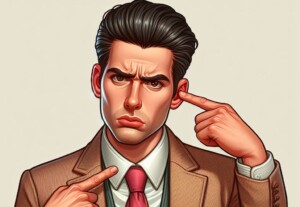If Doctor Thinks Teen’s Mole Must Be Watched, Why Not Biopsy It?

If a teen’s mole is suspicious enough for a doctor to say, “It should be watched,” then why not just biopsy it in case it’s melanoma?
Teens DO get melanoma.
“Melanoma among adolescents and young adults (aged 15-39 years) is more commonly seen in females compared to males, with the majority seen on the trunk,” says Nita Patel, MD, Medical Director of Advance Dermatology and Laser Medical Center in Marina Del Rey, CA.
Teen’s “Watched” Mole Turns out to Be Melanoma Two Years Later
I was inspired to write this article after reading in an online health forum about a boy, 15, who had a new “mole” on his head examined by a dermatologist.
None of it was removed for biopsy even though the doctor told him and his parents to keep an eye on it.
Two years later it seemed a little bigger, and this time it was removed for biopsy. The diagnosis was melanoma that had spread to the lymph nodes.
He underwent chemo and radiation, but five years later, he died from metastatic melanoma.
I wondered why the mole, which was suspicious enough for the doctor to tell the teen and his parents to keep an eye on it, wasn’t simply biopsied right from the get-go.
The earlier that melanoma is diagnosed, the higher the chance of long-term survival. In fact, the 10-year survival rate for stage 0 (in situ) melanoma is 99 percent.
“The decision to biopsy is typically a clinical judgement,” says Dr. Patel. However, if the parents want a mole biopsied, a doctor will very likely honor this request.
Depending on the doctor’s philosophy, a mole will be biopsied simply if the patient feels uneasy about it.
Of course, there are limits to this, in that a doctor isn’t going to remove every single mole just because the patient is fearful of melanoma. But within reason, a biopsy request is usually granted.
“If a mole has a slight irregularity, close monitoring is helpful to decide if a mole should be biopsied,” says Dr. Patel.
“Re-evaluating a mole in a 1-2 month period for changes can help determine if a biopsy is indicated.
“An alternative approach is the use of a new adhesive patch biopsy kit that tests for gene sequences that are seen with melanoma.
“This is a noninvasive method of collecting additional information especially in pediatric populations which may not be able to undergo an invasive biopsy.”
Suspicious Mole on Teen: Watch It or Biopsy It?
“Typically if the mole shows some signs of irregularity, I discuss the option of close monitoring, evaluation excision with a punch biopsy or adhesive biopsy and pigment lesion assay (PLA),” says Dr. Patel.
“The PLA uses advanced genetics to identify two genes, LINC and PRAME, which are elevated in melanoma skin cancer.”
DermTech’s PLA can differentiate melanoma from a benign mole or other lesion with a negative predictive value (meaning no disease) of over 99 percent.
This tool yields a sensitivity of 91 percent and a specificity of 69 percent – without the need for invasive biopsy.
A biopsy of a mole is not as invasive as a teen or parents might think. Hearing the word “biopsy” can unsettle a patient, but the actual procedure is not as penetrating as it sounds.
The needle for the local anesthetic usually causes less pain than a typical paper cut or razor nick.
Nevertheless, a patient may want to forego a biopsy (which, depending on the type of procedure and the size of the mole, will require stitches).
If a doctor wants your teenager’s mole to be “watched” or to “keep an eye on it,” the PLA will offer the advantage of patient comfort plus convenience, especially if there is more than one suspicious mole or a mole is in a cosmetically sensitive area.
“If the parents choose to pursue a biopsy, an excisional biopsy is performed to obtain a complete visualization of the mole on pathologic exam,” says Dr. Patel.
“I send the slide to a dermatopathologist for microscopic examination.”
 Dr. Patel is a Diplomate of the American Board of Dermatology and has extensive experience in general dermatology, skin cancer surgery, cosmetic procedures and lasers.
Dr. Patel is a Diplomate of the American Board of Dermatology and has extensive experience in general dermatology, skin cancer surgery, cosmetic procedures and lasers.
 Lorra Garrick has been covering medical, fitness and cybersecurity topics for many years, having written thousands of articles for print magazines and websites, including as a ghostwriter. She’s also a former ACE-certified personal trainer.
Lorra Garrick has been covering medical, fitness and cybersecurity topics for many years, having written thousands of articles for print magazines and websites, including as a ghostwriter. She’s also a former ACE-certified personal trainer.
.
Top image: Shutterstock/New Africa
Sources
Weir, Hannah et al. J Am Acad Dermatol. 2011 November;65 (5 Suppl 1);S38-49
dermtech.com/wp-content/uploads/2018/05/DermTech_ProductOverview.pdf.
Big Red Pimple on Teen’s Nose that Won’t Go Away

What appears to be a big red pimple on a teen’s nose may actually be melanoma, the deadliest form of skin cancer. (more…)
What Are All the Different Colors that Nail Melanoma Can Be ?

That line or stripe down a nail that’s melanoma isn’t always black or dark brown. It can be other colors, too, and it’s not always a stripe or line, either.
Nail melanoma is also called subungual melanoma, and technically, it’s a cancer UNDER the nail – on the nail bed itself – rather than arising from the dead cells that make up the actual nail.
The line, stripe or band is then seen through the fingernail. Nail melanoma, as it’s commonly called by laypeople, typically presents in some shade of brown.
It can also be what would be described as black or off-black. But other colors can be part of this cancer as well.
“Subungual melanomas can initially begin as a pigment stripe and it changes into light brown, or black,” says Nita Patel, MD, Medical Director of Advance Dermatology and Laser Medical Center in Marina Del Rey, CA.
Dr. Patel continues, “Due to the depth of the pigment, it may also appear greyish or purple.
“It can include the proximal nail fold (also known as Hutchinson’s sign) and also appear as a small bump under the nail with no color.”

Hutchinson’s sign
So we have shades of tan and brown, off-black and black, and also greyish and purple, as possible colors. And of course, no color as a bump under the nail.
Nail melanoma can also be composed of two or three distinct colors forming a band or thick stripe.
The lines, bands or stripes are vertical. However, subungual melanoma can also present as a smudge-like shape or a smear of sorts.
Subungual melanoma can pass as a benign line or streak under the fingernail.
But there are tell-tale signs that point to cancer and signs that point to a benign origin of a suspicious-looking black line or streak.
 Dr. Patel is a Diplomate of the American Board of Dermatology and has extensive experience in general dermatology, skin cancer surgery, cosmetic procedures and lasers.
Dr. Patel is a Diplomate of the American Board of Dermatology and has extensive experience in general dermatology, skin cancer surgery, cosmetic procedures and lasers.
 Lorra Garrick has been covering medical, fitness and cybersecurity topics for many years, having written thousands of articles for print magazines and websites, including as a ghostwriter. She’s also a former ACE-certified personal trainer.
Lorra Garrick has been covering medical, fitness and cybersecurity topics for many years, having written thousands of articles for print magazines and websites, including as a ghostwriter. She’s also a former ACE-certified personal trainer.
Pink Line or Stripe on Fingernail or Toenail Can Be Melanoma
Fast Whooshing Sound in One Ear from Every Loud Sound: Causes?

It’s one thing to have a constant “whooshing” sound in one’s ear, but what does it mean when this happens only from exposure to loud noise?
“Loud noise exposure is a trigger for tinnitus,” says Gene Liu, MD, MMM, and Chief, Division of Otolaryngology, Cedars-Sinai Medical Group.
“Most commonly, tinnitus is described as ringing in the ear, but can also sound like roaring, buzzing, hissing, humming and even whooshing,” explains Dr. Liu.
“It is possible that someone’s personal variation of tinnitus is ‘whooshing.’
“Loud noises can cause the stapedial muscle, a tiny muscle that attaches to the ear bones, to flutter.
“This can be sometimes felt as twitching, but may also be heard as a series of rapid clicks, which perhaps could also be described by the patient as a ‘whooshing’ sound. This is not a serious issue, but can certainly be annoying.”
Pulsatile Tinnitus
If you’ve read up on the so-called pulsatile tinnitus, then you know that it’s not typically triggered by loud sounds.
Rather, when a person hears this, it’s present all the time or most of the time, regardless of noise in the environment.
However, it can be concealed if there’s enough ambient noise. But once the noise quiets down, a person will begin hearing the “whooshing” again, usually in synch with their heartbeat.
This is especially easy to hear once a person gets into bed at night and everything’s very quiet.
And pulsatile or whooshing tinnitus can have benign (earwax buildup, Eustachian tube dysfunction) as well as very serious causes (blood vessel entanglement).
However, Dr. Liu explains, “If there is pulsatile whooshing (matches heartbeat) that is brought about by noise exposure, then consider superior canal dehiscence,” a rare condition that affects hearing and balance.
“This issue usually causes dizziness with loud noise exposure, but can add a component of sound hypersensitivity called hyperacusis, that can exacerbate a whooshing noise (or any other type of tinnitus).”
 Dr. Liu’s clinical areas of focus cover a broad range including surgery of the head and neck, sinuses and thyroid, and disorders of the ears, salivary glands and vocal cords.
Dr. Liu’s clinical areas of focus cover a broad range including surgery of the head and neck, sinuses and thyroid, and disorders of the ears, salivary glands and vocal cords.
 Lorra Garrick has been covering medical, fitness and cybersecurity topics for many years, having written thousands of articles for print magazines and websites, including as a ghostwriter. She’s also a former ACE-certified personal trainer.
Lorra Garrick has been covering medical, fitness and cybersecurity topics for many years, having written thousands of articles for print magazines and websites, including as a ghostwriter. She’s also a former ACE-certified personal trainer.
.
Top image: ©Lorra Garrick
How to Boost Testosterone without a Doctor’s Prescription

There are seven ways you can boost your testosterone levels on your own without having to see a doctor.
Maintaining a healthy testosterone level is crucial for optimal health and performance.
Many men believe that to effectively boost testosterone levels, they must get a “testosterone drug” prescription from a doctor — or seek out some “pill” online, for which they would not know what’s really in it – or not in it.
But raising one’s circulating testosterone can be done without intervention by a physician or taking so-called hormone pills. And there are seven ways to achieve this.
Get Better Sleep
Just one week of deprived sleep time lowered testosterone levels in men, in a controlled study at the University of Chicago Clinical Research Center led by Eve Van Cauter, PhD, professor of medicine.
Sleeping fewer than five hours/night was enough to significantly lower the levels of this youth-enhancing hormone that’s so important to building and maintaining muscle growth and feeling young and energetic.
So however you can manage it, just try to get seven hours of sleep a night.
Another study (The Journal of Clinical Endocrinology & Metabolism, July 2002) showed that untreated sleep apnea reduces testosterone production.
• Can affect thin younger men due to natural throat anatomy.
• Smoking and drinking are risk factors regardless of body weight.
• Repeatedly awakening during sleep gasping for breath may indicate sleep apnea.
• A sleep study at home or in a lab will confirm sleep apnea.
• Not all people with sleep apnea snore.
• Daytime symptoms include trouble concentrating and unexplained irritability.
Improve Your Diet
Too much fructose and glucose (sugars) can lower testosterone levels, according to a study in the Journal of Clinical Investigation (Nov. 2007).
Cut back on fruit juices, soda, candy, baked goods and anything else that’s crammed with sugar. Avoid high fructose corn syrup, which is added to many processed foods.
Eat more whole food and less processed food. Load up on whole fruits and vegetables.
Lose Excess Body Fat
A paper in Clinical Endocrinology (Sept. 2012) reports that in a study, obese males 14 to 20 had half the testosterone as non-obese males.

Depositphotos.com
The best way to lose weight is to strength train and do high intensity interval training — rather than spend hours and hours every week doing steady state aerobics.
High intensity interval training means alternating very brief periods of very strenuous effort with a few minutes of easy pacing.
So rather than pedaling at the same sustainable pace for an hour on an elliptical machine, you should pedal like a madman (e.g., 300 RPM) for 30 seconds, then pedal at 70 RPM for two minutes, and alternate the way for half an hour — even 20 minutes — to achieve a loss in body fat.
And an increase in testosterone.
Lift Weights
Strength training increases production of testosterone. For a really big boost, lift intensely.

Lifting as heavy as possible for eight to 12 reps, with breaks of about a minute or so in between sets, will raise testosterone levels. The key is to choose exercises that target multiple muscle groups at the same time.
- Back squat
- Deadlift
- Bench press
- Standing overhead barbell press
- Leg press
- Lat pull-down
- Sweated row
- Dumbbell chest press
HIIT for the Hormone
As already mentioned, high intensity interval training boosts testosterone. Anyone can do HIIT; it does not require tip-top physical condition.

Though a common practice is to run up hills or sprint down tracks, it can also be done on a stationary bike or walking on a treadmill incline (don’t hold on). More info on HIIT.
Improve Stress Management
Chronic stress changes the body’s hormonal environment which can negatively impact testosterone production.
Though it’s difficult to remain relaxed in tension-filled settings, at least try to be productive during them, such as doing hand grip exercises while stalled in traffic jams.
Limit Liquor
Alcohol is linked to low testosterone levels. Replace as much of your liquor as possible with water (add lemon slices and a little Stevia sweetener for a refreshing and healthy beverage), pomegranate juice (relatively low in sugar), homemade fruit and vegetable smoothies, and herbal teas.
Want more testosterone?
If you already think you’ve been “doing everything” to boost your natural testosterone level, there’s an excellent chance that you’re doing a few things wrong in the gym.
Here are 10 things you can be doing wrong.
 Lorra Garrick is a former personal trainer certified through the American Council on Exercise. At Bally Total Fitness she trained women and men of all ages for fat loss, muscle building, fitness and improved health.
Lorra Garrick is a former personal trainer certified through the American Council on Exercise. At Bally Total Fitness she trained women and men of all ages for fat loss, muscle building, fitness and improved health.
.
Sources
jamanetwork.com/journals/jama/fullarticle/1029127
sciencedaily.com/releases/2002/07/020731080733.htm
sciencedaily.com/releases/2007/11/071109171610.htm
onlinelibrary.wiley.com/doi/abs/10.1111/cen.12018
webmd.com/men/features/exercise-and-testosterone#
ncbi.nlm.nih.gov/pmc/articles/PMC5551442/
ncbi.nlm.nih.gov/pmc/articles/PMC5128352/
pubs.niaaa.nih.gov/publications/arh25-4/282-287.htm
Can Actinic Keratosis Be Yellow & Resemble Seborrheic Dermatitis?

That patch of yellowish overgrowth of skin that you think has been seborrheic dermatitis all this time may actually be actinic keratosis, a precancerous lesion. (more…)
Edge of Longstanding Mole Is Coming Away from Skin: Melanoma?

The mole has been there since you could remember, when suddenly an edge of it has started to come away from the skin. (more…)
Swimming After Embryo Transfer: Fertility Doctor’s Guidelines
There is a period of time after an embryo transfer during which a woman should avoid swimming.
This is why she should not schedule the embryo transfer in close proximity to a vacation during which she knows she’ll want to get into the water.
“I recommend no swimming until pregnancy test is done around day 9 after day 5 transfer,” says Ralf Zimmermann, MD, medical director of Neway Fertility, one of NYC’s leading fertility centers specializing in customized and affordable natural fertility treatments.
Dr. Zimmerman adds that he has never come across any studies that specifically address swimming guidelines after an embryo transfer. Nevertheless, a woman should play it safe until the pregnancy test.

Ralf Zimmermann, MD
Neway leverages state-of-the-art techniques to achieve the highest pregnancy rates in the United States. Neway, founded in 2011, is the first fertility center in the U.S. to deliver over 10 babies using IVM, a groundbreaking fertility treatment requiring little to no medication. Neway specializes in IVF, IVM, natural cycle IVF, IUI, genetic testing and more.
 Lorra Garrick has been covering medical, fitness and cybersecurity topics for many years, having written thousands of articles for print magazines and websites, including as a ghostwriter. She’s also a former ACE-certified personal trainer.
Lorra Garrick has been covering medical, fitness and cybersecurity topics for many years, having written thousands of articles for print magazines and websites, including as a ghostwriter. She’s also a former ACE-certified personal trainer.
.
Top image: Freepik.com.
Can CT Scan of Ovary and Pelvic Area Damage Eggs?

Are you trying to get pregnant, need a CT scan of the pelvic area and are worried the radiation will damage the eggs in your ovaries? (more…)
What Is Transitional Sleep Apnea?












































